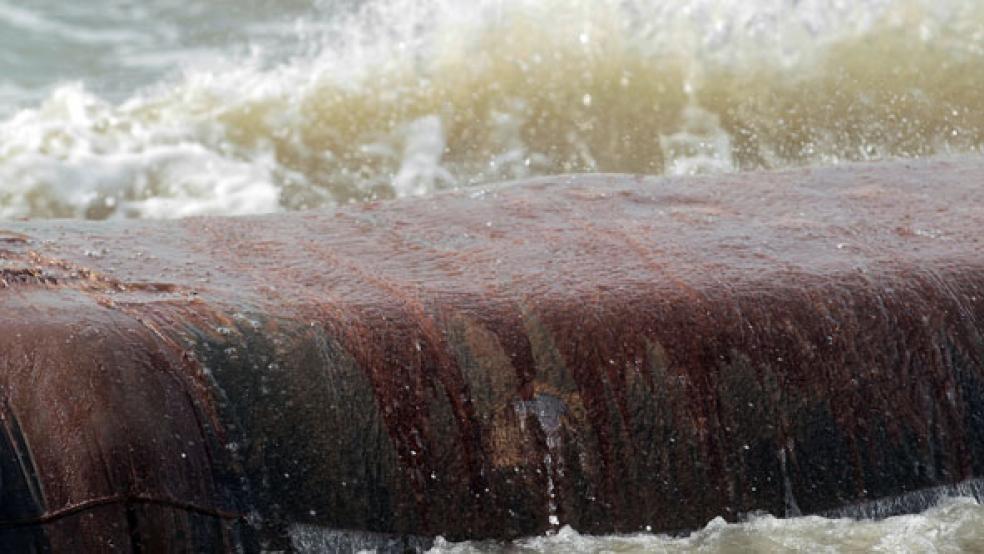• 1.5 percent of U.S. GDP comes from Gulf state industries most affected by the oil spill. • 0.2 percent of world oil production could be lost in 2011 under a U.S. deep water drilling ban. • $3.1 billion has been spent by BP so far to cover cleanup and damages. |
On top of slow growth, high unemployment and worries about overseas credit markets, the disaster in the Gulf of Mexico following the April 20 explosion of the Deepwater Horizon drilling rig seems to be one more load for a struggling economy to bear. But while the calamity has hammered the region’s ecology, altered lives and depressed local businesses, economists believe its net effect on the U.S. economy will be minimal.
The industries most affected — oil and gas exploration, commercial fishing and tourism — account for about 9 percent of gross domestic product in the Gulf region, according to an analysis by Barclays Capital. That’s about 1.5 percent of U.S. GDP, and only a tiny fraction of that has been disrupted by the spill. “We do not expect the impact of the oil spill to be extensive enough to change the path of U.S. growth significantly in the near term,” says Barclays economist Theresa Chen.
Economists say the maximum effect, maybe a few tenths of a percentage point in the annualized rate of GDP growth, will be felt in the second quarter, with an even smaller impact in the second half. In addition, much — and conceivably all — of the output, jobs and income lost in the region will be offset by billions spent on recovery and cleanup, and by spending that will be shifted from coastal Gulf areas to other places. That’s not unusual for GDP accounting during hurricanes and other disasters that involve rebuilding or relocation. However, it also highlights the inadequacy of GDP as a full measure of the costs to society of environmental damage, emotional and psychological strain, and other effects markets can’t always put a value on.
BP, the oil giant at the center of the disaster, said on July 5 that it has already spent $3.1 billion on spill response, containment, relief well drilling, grants to Gulf states, payouts for claims, and federal costs. The company has agreed to commit $20 billion for economic damage and cleanup. So far, BP says it has received 95,000 claims and paid 47,000, totaling $147 million. It also says 44,500 personnel are now engaged in the response, although some of these already were employed by BP or under contract. A few weeks ago, the company reported hiring some 4,000 unemployed people for the cleanup effort.
The impact of the spill on oil production, oil-related jobs, and oil prices appears to be minimal, even including the moratorium on exploratory deepwater drilling imposed by the Obama Administration. The moratorium was blocked by a federal judge in late May, but the White House went to court on July 8 to try to reverse that decision. Although oil companies have suspended new drilling on more than 30 rigs in the Gulf, each employing about 100 workers, until the issue is resolved, some oil-services firms say they are relocating some of their workers to other areas, given generally strong activity around the globe.
| Percent of Jobs in the Coastal Counties of the Five Gulf States | ||
| State | % of Jobs | |
| Louisiana | 64% | |
| Mississippi | 44% | |
| Alabama | 41% | |
| Texas | 35% | |
| Florida | 28% | |
| Source: Dun & Bradstreet | ||
The Deptartment of Energy on July 7 said a six-month suspension of deepwater exploratory drilling would cut crude output by 31,000 barrels per day in the fourth quarter and by 82,000 barrels in 2011. Those cuts compare with overall U.S. production of more than 5 million barrels per day, and world output of about 86 million barrels. The hit to output would be larger the longer any suspension lasts. Oil analysts at J.P. Morgan Chase say an extended moratorium could reduce U.S. production by about 150,000 barrels in 2011, or about 3 percent of U.S. output.
Commercial fishing in the Gulf region, which also affects canning and other processing activities, totaled $661 million in 2008, according to the National Marines Fisheries Service. That’s about 0.005 percent of U.S. GDP. Moreover, despite fishing bans in some areas, more than two-thirds of the Gulf remains open for fishing. J.P. Morgan analysts also point out that the U.S. imports more than 80 percent of the fish it consumes, so the spill’s impact on fish and seafood prices is likely to be small.
Clearly, a big impact in the Gulf region is on tourism. But while devastating to some coastal areas, the spill is likely shifting tourist dollars to other vacation spots. That’s a tragedy for local Gulf coast hotels, restaurants and recreation spots, but it means the hit to overall GDP for that industry is unlikely to be large. The Federal Reserve’s latest region-by-region business roundup, which included information for the southeastern district, said key Gulf states reported a potentially substantial impact on tourism along coastal areas, but in some cases “vacation lodging cancellations have been replaced by bookings from cleanup crews, laborers and the National Guard.” The report also noted overall strength in the district’s tourism industry, with hotel occupancy rates in New Orleans, Tampa, Miami and Orlando all running above the national average.
| Five Largest Businesses in the Coastal Counties of the Five Gulf States | ||
| Industry | Number of Businesses | |
| Eating Places | 78,448 | |
| Repair Services | 29,780 | |
| Gift & Souvenir Shops | 16,737 | |
| Hotels and Motels | 11,478 | |
| Gas Stations | 8,411 | |
| Source: Dun & Bradstreet | ||
Looking at the economy with the limited sight of GDP suggests that investors have more important worries for the economic outlook than the disaster in the Gulf. As J.P. Morgan Chase economist Michael Feroli has noted, the overall cost of the spill will fall more on ecology than on the economy, since the ecological damage could last for years. Over the long run, he notes, the cost of tighter regulation could be future cuts in oil and gas production. But in any broader measure of economic and social well-being, a cleaner environment would be an offsetting benefit.





